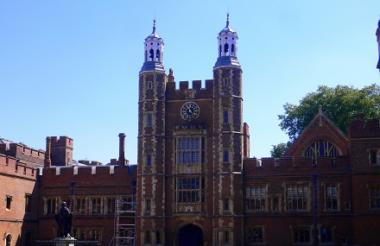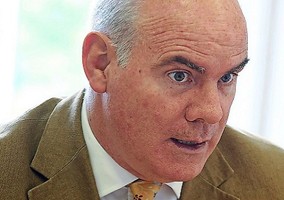Once again, one of Labour’s few charity policies surrounds public/private/independent schools (delete according to personal language preference).
This is unsurprising: Labour has never been a fan and I can’t remember any manifesto pledge or party conference that hasn’t included some version of this policy, albeit this time Labour has gone further in wanting to ‘integrate’ private schools with the state sector and seize their assets.
This inevitably led to much debate in the sector. Should everyone rise up against a socialist plot to nationalise charity assets? Where might Labour stop - could it also seize the assets of private hospitals for the NHS, hospices for social care, or make the RSPCA a wing of the police?
Or is the redistribution of assets that are benefiting relatively few (7 per cent of people are privately educated) one way to reduce inequality in society and therefore something the wider sector should be in favour of?
The choice therefore is between standing with the independent school sector against a raid on their assets and sacrificing them as part of the greater good. It’s not an easy decision for many.
For its part, the private schools sector is fiercely defensive of its place in society and the value it adds, as shown by the Independent Schools Council’s robust response. It seems unlikely they will hand Corbyn and his team the keys to their (very nice) buildings without a fight.
History of public schools
In truth it is something of a quirk of history that private schools are part of the sector. It wasn’t until the end of the 19th century that there was free, widespread and compulsory schooling for children aged between 5 and 10. Later for secondary education.
The oldest private school, King’s School Canterbury, was founded in 597. In 1541 it was made the made the responsibility of the Cathedral Foundation of Henry VIII.
During the early modern era, the terms independent and public were ascribed to schools which were independent of the church and open to the public regardless of religious affiliation. Often these were set up as charitable foundations to educate boys from disadvantaged backgrounds, but many discovered that they could expand by charging those who could afford to pay.
So the tradition of private education pre-dated the existence of state provision and was therefore naturally incorporated into the first drafts of charity law without too much questioning at the time.
What does charity law say?
The advancement of education is one of the 13 descriptions of charitable purposes as set out by the Charities Act 2011.
Removing it could impact on the charitable status of a whole host of organisations including sports clubs, adult education offerings, youth groups and research institutes.
Schools, like other charities, are expected to meet wider public benefit standards, and how private schools meet this has been the subject of an extensive discussion, of which there is not room for here.
But it is worth noting that reform to compel private schools to provide more public benefit has supporters on the right. In fact a consultation on the charitable status of private schools was one of Theresa May’s policies as Conservative prime minister.
The other aspect about private schools that irks many is the high level of fees charged. But private schools are not the only type of charity to charge service users fees or operate a membership model for access resources.
Attempting to set limits on what charities could charge would be extremely problematic on both a legal and practical level.
But it’s worth remembering that governments can always change the law. In fact it is often what they are elected to do.
Could we start from scratch?
What if we started from scratch when it came to what kind of organisation was entitled to charity status? Would schools charging thousands in fees be considered a charitable endeavour by most reasonable members of the public?
But equally, the vast majority of public schools are not Eton. A blanket ban, as suggested by Labour, feels like taking a sledgehammer to a problem. It is important that the wider consequences for the sector are raised with politicians to avoid any unintended consequences.
When it comes to delivering any public service, charities are best placed to provide specialist services and innovate. This includes schools that focus on areas like music, art or sports, and specialist services for people with particular needs where a universal statist approach would be impossible to deliver the required services.
We might argue that those public schools charging high fees to offer a general, or predominantly academic education, have succeeded in their original mission – education is now open to the public and is independent of religious orders. The state is committed to providing this at a high standard for everyone.
Labour has gone too far in its policy for a blanket integration. But charities should also reflect on the desire for a proper national debate to ensure charity law, which decides who is allowed into the tent, is fit for the next decade. If it isn’t the mismatch between what people think of as a charity and what they legally are will only grow.
|
Related articles












